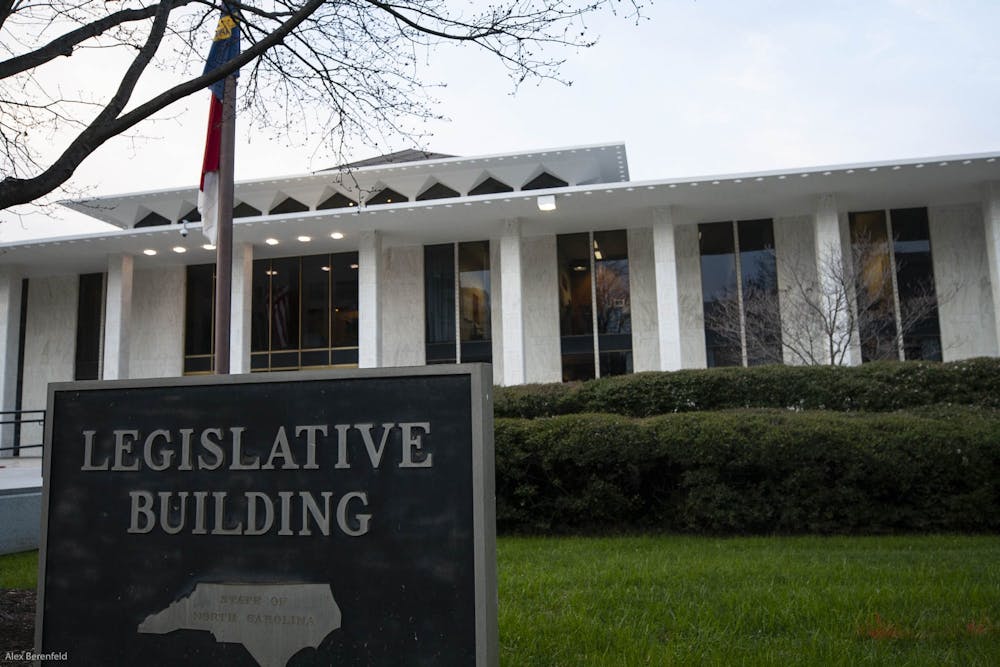As the North Carolina General Assembly's legislative session continues and begins voting, The Daily Tar Heel has created a guide for how laws are proposed and passed in the North Carolina state legislature.
The legislative process starts with a proposal, which can come from a variety of sources, including special interest groups, state agencies or legislators. From there, a legislator can send a request to the General Assembly’s bill-drafting division.
“They have various teams based on the subject that can do some of the research that may be necessary and then put it into the format of a bill,” Rep. Renée Price (D-Caswell, Orange) said.
Christine Wunsche, director of the UNC School of Government’s Legislative Reporting Services, said there is no requirement that any type of bill originates in a particular chamber.
Though any member of the N.C. House of Representatives or Senate can propose a bill, each House member is limited to proposing 15 bills for each two-year legislative session. Wunsche said the House typically produces more bills than the Senate.
"We see more in the House, but that's because there are more House members," she said.
Once a bill has been proposed, it is assigned to a committee. The chairperson of the committee decides which bills to put on the agenda for voting.
The chairperson can consider a variety of factors, but there are no set rules on which bills can and cannot go up for a vote, Wunsche said.
If a committee decides to put a bill up for a vote, it must receive a favorable vote in both the N.C. House of Representatives and Senate in order to pass.



